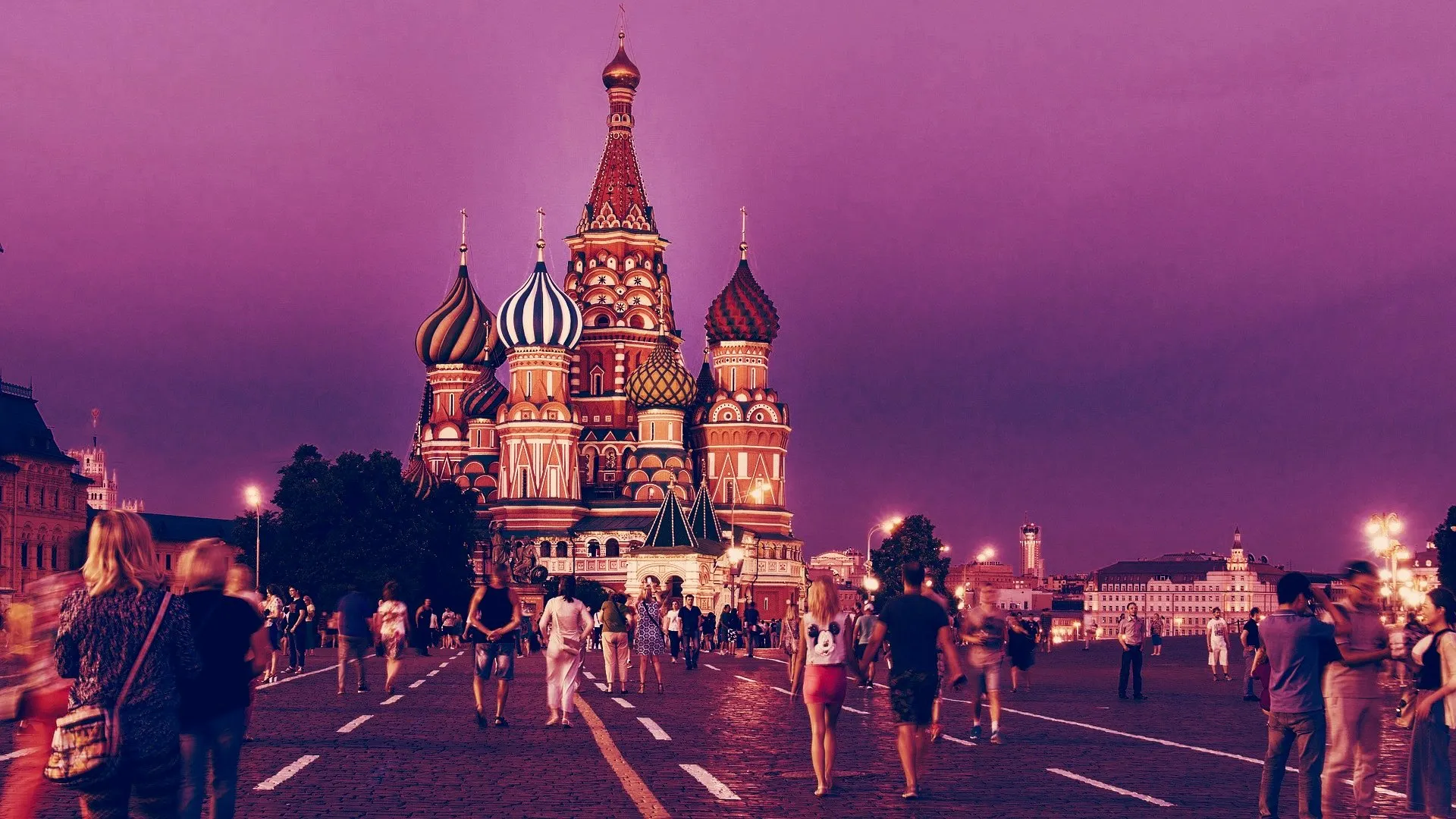Last month, when I was at the Ethereal Conference in Tel Aviv and attending the Women in Blockchain breakfast, a young woman plopped herself down next to me. She looked at me and my nametag, and smiled, knowingly.
“So nice to finally meet you in person!” she said. “I had seen your name on the attendee list and wanted to say hello.”
I looked at her nametag but neither her name, which was decidedly Slavic, nor the small crypto company where she worked, sounded even remotely familiar. “I’m sorry, but...” I said.
“Oh, you knew me before by my Western name,” she said, giving me a name that was indeed familiar. I had worked with her online, on a big piece I had done over a period of months. I had always believed, however, that her crypto startup was Israeli.
But as the woman and I chatted, it became clear that the company, as well as she, were both Russian.
Why the cloak and dagger? Why do Russians in crypto go to such lengths to hide their identity?
The cryptic crypto scene in Russia
It turns out that US and EU sanctions—or at least the fear of them, plays a part. So do negative feelings people in those places appear to have related to hacking elections, killing Russian defectors (and British citizens) abroad, and a sense that in the often lawless world of crypto, things can be even more lawless and unregulated in Russia.
Anyone who’s been on the journalism side of crypto for a while can tell you that every day brings email solicitations from PR people with suspiciously bland, Western-sounding names, who are looking to buy links or place content on behalf of their murky crypto companies. And anyone who’s tried to probe deeper pretty quickly figures out that the company is Russian.
As a long time resident of St. Petersburg, Russia (and a slightly shorter time as a journalist in the crypto space) I’m not as surprised as most when people who don’t have Russian names are actually Russian. For example, popular crypto personality Tone Vays was born as the more Soviet-sounding Anton. (I have not been able to find his last name, and for the record, he was educated in the U.S. and considers himself Russian-American.)
During my research, I also hadn’t realized that Bitfury’s management is made up of many Latvians (a former Soviet country, although now Eastern European and independent from Russia), while crypto exchange Changelly has as-of-yet unconfirmed online posts accusing them of hiding a Russian base. There are many examples of countless companies doing this.
A third of all crypto worldwide?
It’s not an easy task to determine how much of the crypto and blockchain space really has roots in the Russian-speaking world. Max Pertsovskiy, head of growth and strategy at Swiss-based but heavily Russian blockchain firm Waves, hypothesized that as many as 35 percent of crypto projects worldwide probably have Russian roots. Waves often works with the Russian government on blockchain projects as well as local governments doing blockchain-related voting projects across the country.
Dmitriy Budorin, co-founder and CEO of Ukranian cybersecurity ecosystem Hacken, was more specific: by his estimates, as many as 200,000 people from Russia, plus another 50,000 people in Ukraine, work full-time in blockchain and crypto. Anton Vasin, the co-founder of blockchain escrow exchange Serenity Financial (partially Russian-based, partially Estonian-based), also mentioned that a significant portion of mining takes place in Russia.
G0odbye, Comrade Major
I decided to reach out to any PR agents that had a vaguely sounding Russian last name that had pitched me over the past year. The first response I got to my questions about their Russianness was the unintelligible: “Good bay tovarisch Mayor.”
I knew that “good bay,” was just a typo for “goodbye,” but the rest of it went over my head. So I asked a Russian crypto friend to explain: “‘Tovarisch mayor’—or ‘comrade major,’ in English—is a popular meme on the Russian Internet that's supposed to mock the gradual erosion of the concept of online privacy,” my friend said. “It refers to an imaginary FSB [Russian Federal Security Service] major who is assigned to monitor everything you do online. So it's basically a counterpart to the ‘your FBI handler’ meme over in the U.S. It's a joke, but one that may imply that the person you're talking to has something to hide.”
An obvious answer for Russian entrepreneurs’ desire to obfuscate their origins is the sanctions that have been imposed on the country by the international community since 2012 with the Magnitsky Act (which targeted Russian businessmen involved in the death of Russian tax accountant Sergey Magnitsky), and again more strongly after Russia’s 2014 annexation of Crimea.
While the sanctions themselves don’t specifically forbid foreign companies from working with Russian-based crypto companies, a stigma does seems to exist.
Said Pertsovskiy: “Regardless of industry, publicly identifying as Russian opens the door to negative stereotypes about election-meddling hackers or fraudulent businesses operating in the same region. I call that phenomena ‘the identity crisis of the Russian entrepreneur’ but in my opinion mostly it's prejudice.”
In early 2018, rumors of the creation of a “crypto ruble” in Russia as a mechanism to avoid sanctions spread fear in the general media, but to date, nothing has come to fruition.
“Today, it does not matter what kind of money (fiat or crypto) countries under sanctions use, as everyone who cooperates with them will be subjected to harsh repercussions by the U.S.,” Pertsovskiy said. “With the goal of facilitating trade and investment outside the grip of the United States, Russian financial institutions are running multiple blockchain pilots. While it would improve the overall financial situation, even if Russia introduces cryptocurrency in the near future, the country will not be able to avoid U.S. sanctions entirely.”
The name-change game
Those Russian-affiliated crypto and blockchain players that were willing to talk to me about their relationship to the motherland pretty much all had the same corporate structure: a decentralized, globally oriented company, usually based in Estonia, and a development office somewhere in Russia.
For example, Konstantin Gladych, CEO of Estonia-based Atomic Wallet, was open about the fact that they do have a developers office in St. Petersburg, but did underline that the company doesn’t widely advertise their Russian connection, even though it’s not technically a secret:
“We are not like pushing it on the front page. Russian developers? C’mon!”
An anonymous Russian employee at a different crypto-related firm noted that their Russian team was required to change their names to the American alternative: “We don’t use the Russian language or any sign that we’re Russian while interacting with other projects,” the person said, adding that when they discuss crypto work that’s Russia-based, “we don’t disclose their origin, don’t mention any fact about them.”
The Westernized name change was an oft-repeated complaint: another anonymous Ukrainian crypto-adjacent employee told me that she’s fed up with Russian crypto firms wanting her to sound more Western: “My professionalism doesn't depend on my nationality, gender, or skin tone. I don't get why the fact that I'm Ukrainian, not American, could make me worse.”
Bad PR
This reluctance to proclaim Russian roots from the rooftops has a lot to do with trust, according to Gladych—although he attributed the Americanization of Slavic names to the difficulty Westerners have in pronouncing them.
Konstantin Lomashuk, cofounder of blockchain investment fund Satoshi Fund and CEO of staking service P2P Validator, noted that p2p.org (which is also global) purposefully does not position itself as a Russian company. He, too, has offices in Russia with developers, but he cites the country’s relatively small market as a possible reason companies are hesitant to work with Russian companies.
While Pertsovskiy admitted that the current political climate could potentially be harmful to companies with Russian roots, overall—in his view—the United States media can be partially to blame for spreading unfair bad PR.
Pertsovskiy said, for instance, that the biggest recent story in Russian crypto globally was a Russian suing Apple for receiving a “GayCoin” crypto (Pertsovskiy claims it was possibly sent to a Waves wallet) that turned him gay in a country with a history of LGBT rights abuses.
“A lot of good stuff is going on here, not just politics and this funny stuff,” he said, mentioning several times the importance of a joint St. Petersburg/Moscow blockchain week to showcase local talent and bring in global players.
The best developers
In fact, everyone I spoke with agreed on two things: Russian developers are not only a good move financially, they are also the best at math.
Atomic Wallet’s Gladych said the Soviet government's strong push for math and science education might explain why Russian developers’ are seen as super tech talents today. Pertsovskiy noted the importance of Russia’s tech pantheon of heroes: Google’s Sergey Brin, Telegram’s Pavel Durov, and Badoo’s Andrey Andreev. Those three are particularly inspiring to young Russian programmers.
According to Pertsovskiy, there’s even a saying in the developer world specifically praising Russians:
“If you’d like to solve some programming issue, you go to the American developers.You would like to solve some hard programming issue? You need to go to the Chinese. And if you’d like to solve some impossible programming issues—you go to Russia.”

